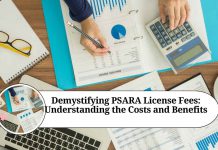Understanding DPL/NDPL Licenses: Everything You Need to Know
Open source software has gained immense popularity over the years, thanks to its collaborative nature, flexibility, and the ability to modify and distribute it freely. However, to ensure that open-source software remains free and accessible to all, various licensing agreements have been introduced. One such license is the DPL/NDPL License. In this blog, we’ll take a closer look at what the DPL/NDPL License is, how it works, and its key features.
What is the DPL/NDPL License?
The DPL/NDPL License is a type of open-source software license that was first introduced by the Digital Creations company in 2000. DPL stands for “Digital Creations Public License,” while NDPL stands for “Nexedi Public License.” Both these licenses are based on the GNU General Public License (GPL) and are designed to promote the use and distribution of open-source software while ensuring that any modifications to the software are also open source.
How does the DPL/NDPL License work?
The DPL/NDPL License works by granting users the right to use, distribute, and modify the software as long as they comply with certain conditions. These conditions include:
- The software must be distributed in its original form, including all copyright notices and disclaimers.
- Any modifications made to the software must be clearly documented and licensed under the same DPL/NDPL License.
- Any software that incorporates or is derived from the DPL/NDPL-licensed software must also be licensed under the same license.
- Any patents or trademarks associated with the software must be licensed under reasonable and non-discriminatory terms.
What are the key features of the DPL/NDPL License?
- Copyleft: The DPL/NDPL License is a copyleft license, which means that any modifications made to the software must be licensed under the same license. This ensures that any improvements to the software remain open source.
- Patent and trademark protection: The license ensures that any patents or trademarks associated with the software are licensed under reasonable and non-discriminatory terms.
- Compatibility with GPL: The DPL/NDPL License is based on the GPL, which means that it is compatible with other GPL-licensed software. This allows developers to incorporate DPL/NDPL-licensed software into their projects without any compatibility issues.
- Liability disclaimer: The license includes a liability disclaimer that limits the liability of the copyright holder for any damages caused by the software.
The DPL/NDPL License is a type of license that was specifically designed to meet the needs of the open-source software community. The license is similar to other popular open-source licenses, such as the GNU GPL, but it has some unique features that make it an attractive option for developers.
One of the key features of the DPL/NDPL License is its copyleft nature. This means that any modifications made to the software must be licensed under the same license. This ensures that any improvements to the software remain open source and that the software continues to be freely available to the community.
Another important feature of the DPL/NDPL License is its patent and trademark protection. The license ensures that any patents or trademarks associated with the software are licensed under reasonable and non-discriminatory terms. This helps to protect the interests of both the developers and the users of the software.
The DPL/NDPL License is also compatible with the GPL, which means that developers can incorporate DPL/NDPL-licensed software into their projects without any compatibility issues. This allows for greater flexibility and collaboration within the open-source community.
Finally, the license includes a liability disclaimer that limits the liability of the copyright holder for any damages caused by the software. This protects the copyright holder from potential legal issues that may arise from the use or distribution of the software.
Conclusion
In conclusion, the DPL/NDPL License is a powerful tool for promoting the use and distribution of open-source software. Its copyleft nature, patent and trademark protection, compatibility with GPL, and liability disclaimer make it an attractive option for developers and organizations looking to release open-source software. However, it is important to carefully read and understand the license terms before using or distributing DPL/NDPL-licensed software to avoid any potential legal issues.
Read more useful content:
Frequently Asked Questions (FAQs)
What is the DPL/NDPL License?
The DPL/NDPL License is an open-source software license designed to promote the use and distribution of open-source software while ensuring that any modifications to the software are also open source.
What does the DPL/NDPL License require?
The DPL/NDPL License requires that any modifications made to the software are licensed under the same license and that any software that incorporates or is derived from the DPL/NDPL-licensed software must also be licensed under the same license.
Is the DPL/NDPL License compatible with other open-source licenses?
The DPL/NDPL License is based on the GPL and is compatible with other GPL-licensed software.
Can I use DPL/NDPL-licensed software for commercial purposes?
Yes, you can use DPL/NDPL-licensed software for commercial purposes as long as you comply with the terms of the license.
Can I modify DPL/NDPL-licensed software and sell it?
Yes, you can modify DPL/NDPL-licensed software and sell it as long as you comply with the terms of the license.
Can I distribute DPL/NDPL-licensed software without including the source code?
No, you must include the source code when distributing DPL/NDPL-licensed software.
What happens if I violate the terms of the DPL/NDPL License?
If you violate the terms of the DPL/NDPL License, you may be liable for damages, and your rights to use, distribute, and modify the software may be terminated.
Can I re-license DPL/NDPL-licensed software under a different license?
No, you cannot re-license DPL/NDPL-licensed software under a different license.
Is the DPL/NDPL License recognized internationally?
Yes, the DPL/NDPL License is recognized internationally and can be used by developers and organizations worldwide.
Do I need to give credit to the original author when using DPL/NDPL-licensed software?
Yes, you must include all copyright notices and disclaimers when using and distributing DPL/NDPL-licensed software.

































